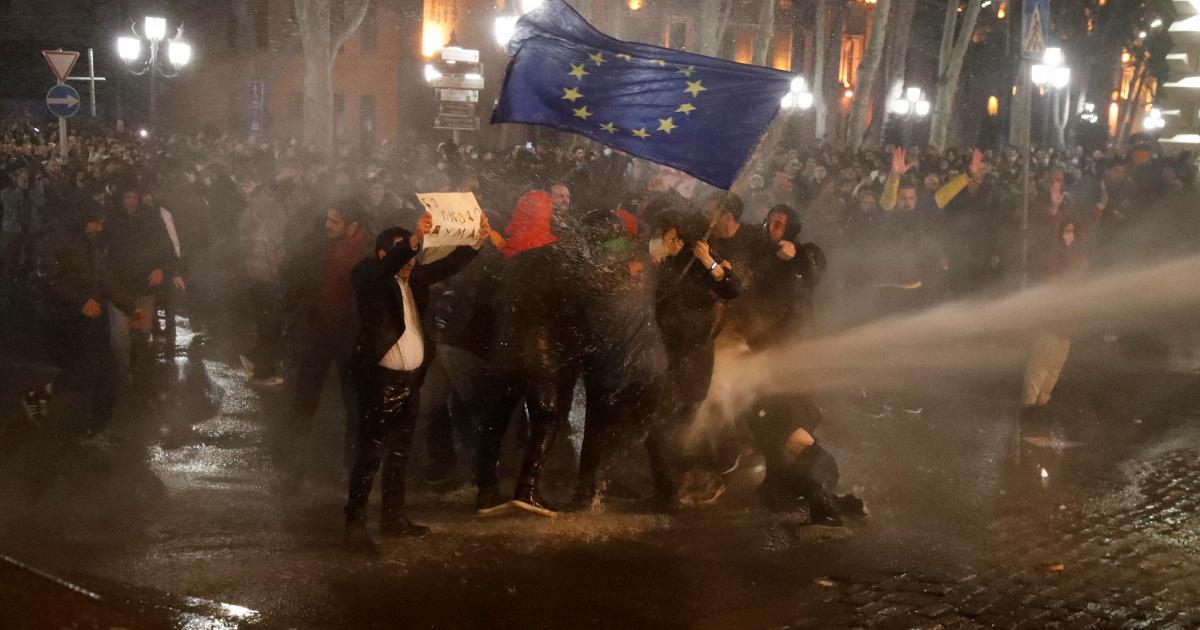Foreign Affairs
Assault on Parliament
Georgia, the law on "foreign agents" triggers protest, clashes in Tbilisi
Special forces used water cannons and tear gas to disperse the crowd. Local media report arrests and injuries in clashes, including some journalists
08/03/2023
Thousands of people protested angrily in front of the Parliament in Tbilisi, Georgia, against the bill on "foreign agents", approved last night at first reading.
Georgian police used tear gas and water cannons to disperse the crowd. Moments of high tension were recorded when some people tried to break into the courtyard of the building by breaking through the security barriers. Some of the demonstrators who took to the streets waved the flags of the European Union and the United States and shouted: "No to Russian law." Among them a woman - filmed in a dramatic video - who with the flag in one hand and the bag in another, resisted the jets of the hydrants. According to the media - during the clashes - there were several injuries and arrests, including some journalists.
The measure - which according to human rights activists would represent an authoritarian turn of the country - requires all NGOs that receive more than 20% of their funding from abroad to register as "foreign agents", under penalty of hefty fines. Detractors of the initiative compare it to Russia's 2012 law, which has since been used by Moscow to crack down on dissent.
Georgian Prime Minister Giorgi Garibashvili reiterated support for the proposed law, saying the provisions on foreign agents meet "European and global standards". "The future of our country does not belong and will not belong to foreign agents," he warned. President Salome Zourabichvili, on the other hand, has spoken out against it, announcing that she will veto the bill, which she says would jeopardise Georgia's hopes of joining the European Union.
More than 60 civil society organizations and media outlets have said they will not comply with the law. In recent years, Georgia's government has faced criticism from observers, who say the country is heading towards authoritarianism. In June, the EU refused to grant Georgia candidate status along with Moldova and Ukraine, due to stalling in political and judicial reforms.

